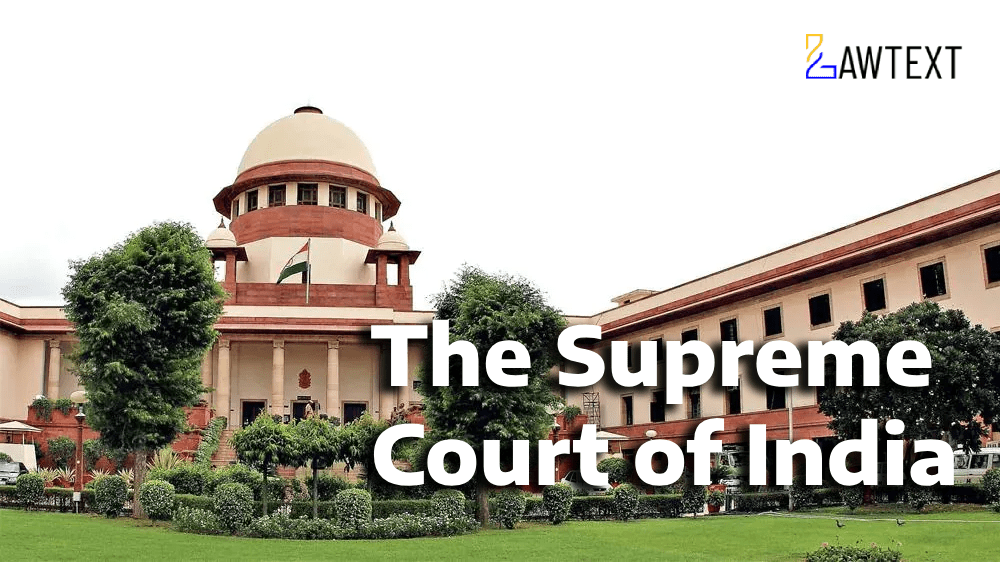Supreme Court Resolves Custody and Visitation Rights Dispute for Minor Child. Balancing Parental Rights with Child’s Welfare and Safety.

CASE NOTE & SUMMARY
The Supreme Court of India addressed a contentious custody and visitation rights dispute between estranged parents, emphasizing the paramount importance of the child’s welfare. While upholding the High Court’s decision to grant sole custody to the mother, the Court made significant modifications to ensure both parents’ meaningful involvement in the child’s life while safeguarding the child’s emotional and physical well-being.
- Custody Granted: The mother (Petitioner No. 1) retains sole custody of the minor child, ensuring stability and continuity.
- Visitation Rights: The Court expanded the father’s visitation rights while implementing safety measures, including supervision by a female court-appointed commissioner during physical meetings.
- Child’s Welfare: The Court balanced the father’s right to develop a bond with the child and the mother’s concerns for safety and emotional well-being, reflecting the child-centric approach of family law jurisprudence.
1. Background of the Case:
- Marriage and Separation: Petitioner No. 1 and the respondent married in 2007 and separated in 2016.
- Custody of Minor Child: The child, born in 2012, has resided with Petitioner No. 1 since the separation.
2. Family Court’s Order:
- Granted sole custody to Petitioner No. 1.
- Limited visitation rights for the father to short, monthly interactions.
3. High Court Appeal:
- Respondent appealed, seeking joint custody or extended visitation rights.
- High Court upheld sole custody but significantly expanded visitation, including fortnightly physical meetings, shared vacations, and video calls.
4. Supreme Court Proceedings:
- Petitioner No. 1 challenged the expanded visitation schedule, citing concerns about academic disruptions, emotional stability, and safety due to past alleged abusive behavior by the respondent.
- Respondent defended the High Court’s decision, emphasizing the importance of fostering a parental bond.
5. Supreme Court Interim Measures:
- Reiterated the child’s welfare as paramount.
- Introduced supervision by a female court-appointed commissioner for physical meetings.
- Limited overnight or week-long visitation until further hearing.
6. Key Observations:
- Both parents must cooperate and prioritize the child’s interests.
- Allegations of abuse and safety concerns will be considered during the final hearing.
Acts and Sections Discussed:
- Guardians and Wards Act, 1890: Governing custody and visitation rights.
- Hindu Minority and Guardianship Act, 1956: Highlighting welfare as the primary consideration in custody disputes.
- Article 21 of the Constitution of India: Upholding the child’s right to life and dignity.
Ratio Decidendi:
The Supreme Court reaffirmed that in custody and visitation disputes, the best interests of the child are of paramount importance. Sole custody remains with the mother due to her role as the primary caregiver. However, the father’s right to meaningful involvement in the child’s life is protected by allowing supervised and limited visitation, ensuring the child’s safety and emotional stability.
Subjects:
Custody and Visitation Rights in Family Law Disputes.
Child Welfare, Family Law, Supreme Court of India, Parental Bonding, Safety Measures.
ISSUE OF CONSIDERATION
RUHI AGRAWAL & ANR. VERSUS NIMISH S. AGRAWAL
Citation: 2025 LawText (SC) (1) 222
Case Number: SPECIAL LEAVE PETITION (CIVIL) NO. 10349 OF 2022
Date of Decision: 2025-01-22
Case Title: RUHI AGRAWAL & ANR. VERSUS NIMISH S. AGRAWAL
Before Judge: [VIKRAM NATH J. , PRASANNA B. VARALE J.]
Appellant: RUHI AGRAWAL & ANR.
Respondent: NIMISH S. AGRAWAL

